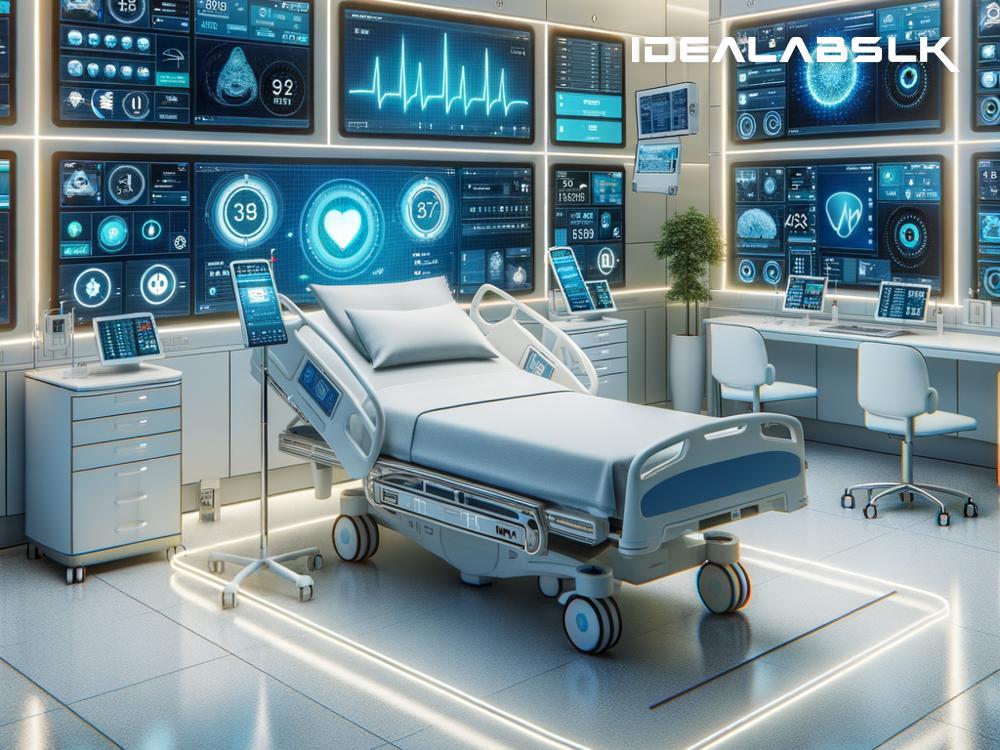Title: The Future is Here: How Smart Hospital Rooms are Transforming Patient Comfort and Care
The era of technology has dawned upon us in many ways, reshaping industries and enhancing user experiences across the globe. One significant breakthrough has been in the healthcare sector, particularly in the way hospital rooms are designed and operated. Gone are the days of cold, impersonal hospital stays. Welcome to the age of smart hospital rooms, where comfort meets care, all thanks to the remarkable advances in technology.
Smart hospital rooms are transforming the way care is administered, making it more personalized, efficient, and significantly more comfortable for patients. These high-tech rooms use intelligent systems and the Internet of Things (IoT) devices to improve patient experience and streamline healthcare delivery. Let's delve into how these innovative environments are enhancing both patient comfort and care.
Personalized Environments
Imagine walking into a hospital room that adjusts to your preferences with minimal effort. Smart hospital rooms make this a reality. With the touch of a button, patients can control the lighting, room temperature, and even window blinds. This level of personal control does wonders for a patient's comfort, providing a more homelike atmosphere that can speed up the recovery process.
Entertainment and Connectivity
Staying connected with the outside world is crucial for patients during hospital stays. Smart rooms are equipped with entertainment and connectivity features like Wi-Fi, on-demand movies, and access to social media. These amenities not only keep patients entertained but also allow them to stay in touch with family and friends, an essential factor for emotional well-being.
Advanced Monitoring Systems
One of the most significant benefits of smart hospital rooms is the advanced patient monitoring systems. These systems constantly check vital signs and alert healthcare providers in case of any abnormalities. This real-time monitoring ensures that the patients receive immediate attention whenever needed, often without the need for intrusive check-ins. This not only enhances patient care but also gives patients peace of mind, knowing they're being looked after every second.
Medication Management
Medication errors can be costly. Smart rooms deploy technology to significantly reduce such errors. Through automated systems, medications are dispensed accurately, and reminders are set for both patients and nurses. This ensures that patients receive the right medication at the right time, enhancing both safety and care quality.
Noise Reduction
Hospital environments can be noisy, which may hinder patient recovery. Smart hospital rooms address this issue by incorporating soundproofing technologies and employing silent alarms that alert staff through mobile devices rather than disruptive in-room alarms. This attention to creating a serene environment can significantly improve patients’ rest and recovery times.
Enhanced Communication with Healthcare Providers
Communication barriers often hinder the quality of care. Smart rooms offer seamless communication tools allowing patients to easily communicate with their healthcare providers. Whether it's requesting assistance or asking a question about their care, patients can do so at the push of a button. This ensures that their needs are addressed promptly, fostering a better patient-care provider relationship.
Energy Efficiency and Hygiene
Lastly, smart hospital rooms are designed with sustainability and cleanliness in mind. Automated systems ensure that lights and HVAC systems are only in use when necessary, reducing energy consumption. Moreover, touchless faucets, voice-controlled devices, and self-disinfecting surfaces help keep the room sanitary, reducing the risk of hospital-acquired infections.
Conclusion
Smart hospital rooms represent a significant leap forward in healthcare. They offer a blend of comfort, efficiency, and safety that traditional hospital rooms simply cannot match. By providing a more personalized and connected environment, they greatly enhance the patient's experience. The advanced monitoring and medication management systems improve the quality of care patients receive, making treatments more effective and reducing recovery times.
The integration of technology into hospital rooms is not just about the gadgets and gizmos; it's about redefining patient care for the better. As technology continues to evolve, we can expect these rooms to become even smarter, further enhancing patient comfort and care. The future of healthcare is here, and it's looking brighter than ever, all thanks to smart hospital rooms.

